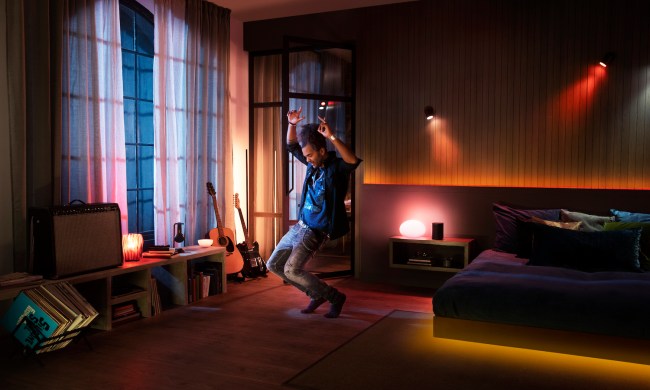I know some people think that a lot of smart home tech is frivolous, and some of it is, I’ll agree, but there are certain things that make daily life a little better. For example, I have security cameras, a video doorbell, smart lights, a smart garage door, and all of these things make living in my home convenient. With my lights, for example, I can create on-off schedules and I don’t have to get up to use them. After a long day, that’s a welcome feature, believe me. It’s especially helpful with Christmas lights and decorative lights — like the ones I have set up to automatically turn on at sunset on my patio.
With a smart video doorbell, I can answer my door, converse with parcel delivery teams, and shoo off solicitors — we get a lot of them where I live. But among all of those experiences and devices, one of my biggest qualms is with the apps you use to interact with this tech.
It seems like every new smart device you install requires its own app, which is silly. Some of them are good, some of them flat-out suck, but it is what it is. If you’re lucky, you can connect with Alexa or a voice assistant and you never have to touch the app, at least until the device becomes unsynchronized for some reason. But one app that I enjoy using is called AiDot and it works with some new smart lights I acquired from Linkind. I’ll tell you a bit more about it in a minute.
For now, I wanted to point out that the Linkind A19 E26 color smart bulbs are 17% off today with an additional 20% off coupon at Amazon. That brings the price down to about $22 from their usual $30. $22 split four ways is about $6 per bulb. Not bad.
Tell me more about the Linkind smart bulbs and the AiDot app
This is by no means an endorsement. Maybe you’ll check out the app and absolutely hate it. A lot of these experiences can be subjective, and it also depends on what else you’ve used in the past. As I said, some of these smart home apps are better than others. But first, let’s talk about the smart bulbs.
The Linkind smart bulbs are pretty standard fanfare as far as smart lighting goes. They have WiFi, support Alexa, Siri (Apple HomeKit), and Google Home, and they feature music sync. The latter allows the bulb to change colors and show effects in tune with the tunes you have on. They also feature preset scene effects and scheduling. As I said, besides some of the minor features — like music sync — they’re a lot like other smart bulbs and smart lighting solutions. A standout here is that they support all Matter platforms. I’ll explain why that’s important below.
A smart home app I don’t despise

After using these bulbs, a , and a , I’m really digging the AiDot app that Linkind uses to sync and control their lighting solutions. It’s fairly intuitive, has a home screen, a place for automations, and various other sections. It has everything you’d ever need to interface with the brand’s lights.
There is a shop section in the app, but it’s not necessary to use if you want nothing to do with it. You can sign up for user testing opportunities, with limited availability, and you can get coupons and discounts on smart home gear. There’s a referral system too. Don’t fret, all of that stuff is optional. Despite having a shop built into the app, I don’t get ads or intrusive content in the automation or home pages, which, these days is a huge, huge boon.
However, the usability and functionality are truly something else here. I can create my own automations or take advantage of presets. There are multiple integrations like SmartThings, IFTTT, Alexa, and Google Home. It’s easy to create new schedules and routines that center around my family’s lifestyle and much more. Another neat feature is wake-up mode, which does require support from the bulbs and it’s available with these. When active, the color of the bulb simulates the sun’s cycle changing from warm to bright automatically throughout the day.
That doesn’t Matter, here’s why
But here’s the thing. If you hate the app, you don’t even have to use it. The Matter compatibility means you can use whatever app you prefer that supports the standard. Echo, Nest, Samsung SmartThings, Alexa, HomePod, you name it. For Matter, you do need a Matter-enabled hub, which you probably already have if you use the standard. It’s nice to see the compatibility, though.
Now, I will say, the brand has other products in the smart home world that I have yet to try. The smart lighting, and interacting with or controlling that lighting, is all I’ve had the opportunity to test in the app so far. What I have used, I like. As for these smart bulbs, the sale price is good. Also, it counts for something that I don’t hate the smart app. If you end up hating it, you can always use the Matter compatibility to find or go with something you prefer.




